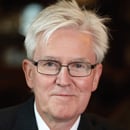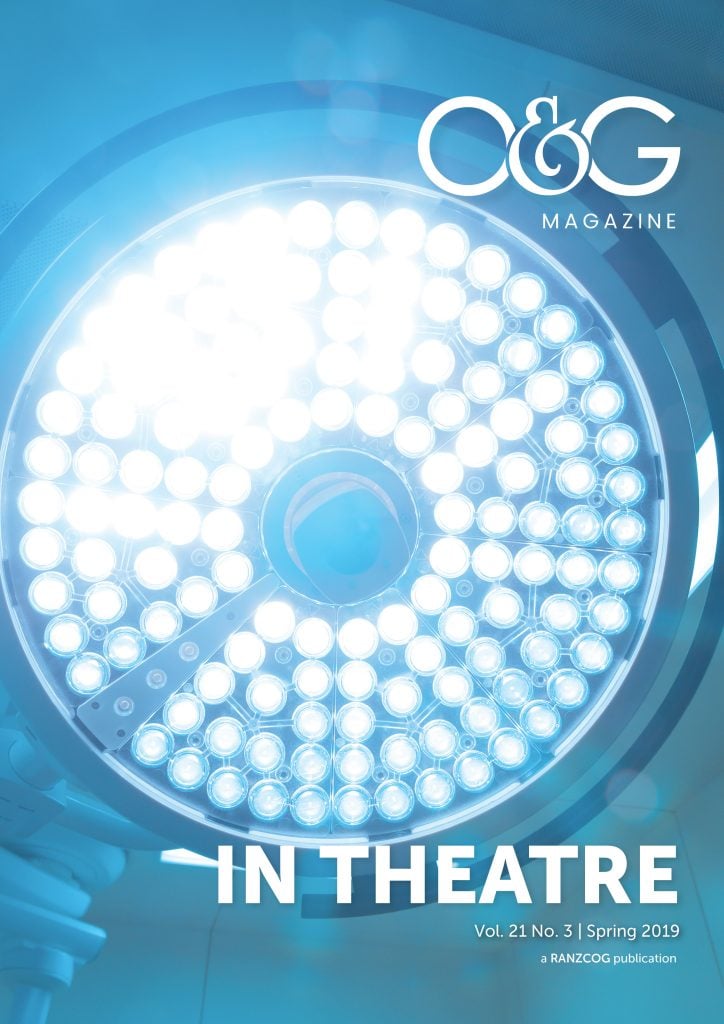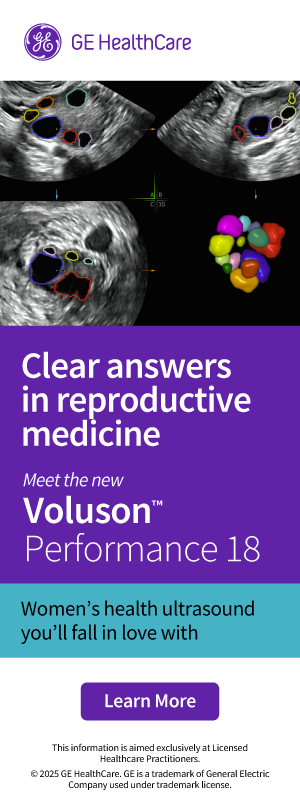‘Growing old is no more than a bad habit which
a busy man has no time to form’.
– Andre Maurois, The Art of Living (1885–1967)
Ageing is inevitable and the alternative considered inferior. Surgeons are not exempt from the impost of advancing years notwithstanding their training, experience, undoubted wisdom or enthusiasm for continuing work. On the positive side, higher education, actively working and physical fitness have all been shown to delay the inevitable march of cognitive decline.
Surgery is time critical and technical. It is dependent on the integration of multiple faculties, including crystalline and fluid intelligence, fine and gross motor skills, stamina, and a host of generic ‘non-technical’ skills such as communication, situational awareness and insight.
In 2017, 29 per cent of 7650 Fellows of RANZCOG and Royal Australasian College of Surgeons (RACS) were aged over 60.1 Evidence suggests that performance (a combination of the knowledge and the ability to execute a task) declines with age. This is neither linear nor uniform across groups or individuals.
Age is only one factor that can affect performance. Combinations of fixed and progressive deficits (eyesight, hearing, fine motor skills and stamina) can combine with reversible or remediable problems (depression, stress and substance misuse) to alter performance and threaten patient safety. A study by Thomas et al2 showed age to be a factor in referrals to AHPRA, although surgeons were referred more often for communication and behaviour than surgical outcomes.
Many of us have been involved in cases where age-related factors may have been involved, but lacking clear pathways and mechanisms to intervene, we tend to ‘let it go by’ as the default position.
Why don’t surgeons retire?
Doctors as a profession, and surgeons perhaps more so, over-invest in work in terms of both personal and material returns. They tend to identify as ‘what I do’ rather than ‘who I am’ and impending retirement threatens this status. Many surgeons altruistically want to continue to contribute, and others in small specialty areas who contribute unique skills have trouble with succession planning. The financial burdens of divorce, re-partnering and second families weigh disproportionately on our profession, as do poor financial planning and the tendency to be ‘soft’ targets for get-rich scammers. The label ‘relevance deprivation’ is aptly applied to many recently retired surgeons.
The Medical Board of Australia (MBA), on advice from the 2017 Expert Advisory Group,33 identified age and isolation as compounding factors in poor performance and referrals to the regulators. In our profession we recognise that these can occur together in the semi-retired O&G surgeon on the locum circuit, some of whom resume procedural work (including intrapartum and operative obstetrics) not practised for many years.
The multifaceted nature of ageing means that to base retirement or change of scope of practice on chronological age alone will fail both ways: the premature retirement of surgeons functioning well in their 7th, and indeed 8th, decades and the ‘too late’ retirement of others whose suitability to continue work as a surgeon has, for a variety of reasons, passed its use-by date. This argues strongly against a ‘one size fits all’ approach of mandated retirement for surgeons at say, age 65 or 70.
The recognisable markers for declining surgeon performance vary from the more obvious to the very subtle, the latter being easy to ignore or ascribe to another cause. Gross markers such as mortality and morbidity (return to OT, avoidable complications, transfusion rates and post-op admission to ICU) should be flagged by standard risk management systems and highlighted by regular peer meetings, where these quality activities are supported. Other changes such as poor communication, delayed or wrong decisions and work avoidance may fly under the radar for some time, with resultant avoidable patient harm.
The measuring tools for assessing the ageing surgeon identified as ‘in trouble’ are resource-intense, confronting and largely unvalidated. Individual outcome data is seldom available, and knowledge of accumulating incidences is siloed by various stakeholders (employer, MDO and regulator), meaning that earlier interventions to remediate, restrict or retire a problematic surgeon are lost.
Who’s involved in the issue?
Recent qualitative research4 undertaken by the author during a six-month sabbatical leave explored the opinions of experts from multiple stakeholder groups, all of whom were involved in the governance of older surgeons. Interviews were conducted with representatives from surgical colleges, employers (public and private), regulators, medical defense organisations and several member organisations (such as AMA). Each contributed both unique and common opinions on various aspects of the ageing surgeon.
Compulsory health and cognitive testing after age 70 – what does this mean?
Firstly, this recommendation from the EAG is less threatening than many have assumed. The recommendation is both evidence-based and proportionate and will involve those doctors who wish to remain on the register beyond 70 having firstly a three-yearly health check that includes cognitive screening and secondly a performance assessment at a similar interval. What these will look like is still to be determined, and the MBA have commissioned an expert working group to further define these recommendations. The medical colleges will undoubtedly be involved in supporting members as the requirements are implemented. While this instrument is likely to be too blunt and generalised to specifically identify the ageing surgeon who is at risk of patient harm, it may act as a valuable screening tool prompting more in-depth review of the under-performing older surgeon.
Is current governance failing to adequately protect the public from under-performing ageing doctors?
While under-performance can affect any doctor at any age, for the senior doctor, age-related factors (sensory, motor and cognitive) may well feature in the causation, as may remedial deficits such as substance misuse and some treatable mental health conditions.
Hospital credentialing should be the key governance tool for ensuring that all practitioners in any setting work within a scope of practice appropriate to their training and current skill set. Too often this process lacks authenticity and is impaired by conflicts of interest and the service needs of a clinical unit. Annual performance reviews with open inquiry with respect to career plans and intended change to scope of practice, combined with support for transitions should be mandated in both public and private settings.
With some exceptions, in the private sector there are specific risks for monitoring the ageing surgeon, including less robust governance, financial conflict of interest and clinician mobility, all of which can prevent adequate responses to failing performance across all specialties, including surgery.
Reducing or changing scope of practice
Simplistically, doing less with respect to volume and complexity and taking more time to do it should be a practical answer to winding down as a surgeon. Additional measures such as ceasing on call, assisting rather than operating and getting involved in teaching, mentoring and coaching can all keep the older Fellow occupied well through their 70s and beyond. There are some negatives to this approach – studies show that surgical volume, not surgeon age, is the main contributor to outcome.5 Going off call limits exposure to acute surgery and further reduces volume and taking on ‘less complex’ surgery may be a false premise for safety, in that any case can become complex.
Should cognitive decline be part of the ageing spectrum, teaching, mentoring and coaching are not going to benefit patient care and may add to the harm.
When should the regulator get involved?
The MBA has the primary role of protection of public safety. It fulfils this duty by registering doctors and setting standards for safe, ethical and competent practice. The range of tools available to the MBA include voluntary undertakings by practitioners in response to conduct or performance concerns, through to imposed restrictions or removal of registration (and licence to practice, either temporarily or permanent). Unless there is a demonstrated immediate threat to patient safety, the preference of the regulator (and other stakeholders) is that solutions to performance issues be mediated at a lower level, including input from the surgeon, their employer, colleges and if appropriate, medical defense organisation. Our study supported an approach based on John Braithwaite’s theory of Responsive Regulation,6 wherein most of the controls and maintenance of standards are concentrated at the base of a regulatory pyramid, with surgeons themselves given the support and tools to monitor and respond to change in performance. The next level of college, medical regulator and MDO then becomes involved next, with the regulator (whose legislated powers allow the strongest intervention) stepping in when recidivism and lack of insight continue to threaten best practice and safe delivery of care.
The challenges for professional colleges
RANZCOG has responded to the MBA with an updated online CPD program – the Professional Performance Framework. Included in this will be a requirement for practitioners to report on their individual practice performance, including scope, volume and outcomes.
Our college is currently in the early stages of establishing a senior Fellows group that will be part of a continuum of RANZCOG member support. RACS have an active senior surgeons group and resources for members to guide transition to retirement. The RACS group also have a session at each ASM to highlight relevant work around ageing and medical practice, as well as ‘showcasing’ successful examples of transition to retirement.
The challenge remains to design a framework to support the late career surgeon that avoids a unidimensional approach based solely on age. To achieve this, we must normalise the conversation about ageing and starting planning for retirement well before the event. Notwithstanding the need to avoid any ageist aspects of guidance around this issue, the evidence supports some mandated age-related assessments of sensory faculties, general health and cognition, as per the MBA recommendation. RANZCOG should proactively engage with other colleges, employers, regulators and MDOs to promote a collaborative approach to this issue, which that is more likely to succeed than either resisting the inevitable or continuing the current ‘silo’ approach where each stakeholder manages individuals in reaction to an identified problem. This should permit the recognised attributes of senior clinicians to be harnessed to improve, rather than detract from, the quality of care offered to our patients.
References
- Workforce data available online at RACS www.surgeons.org.au and RANZCOG www.ranzcog.edu.au.
- LA Thomas, E Milligan, H Tibble, et al. Health, performance and conduct concerns among older doctors: A retrospective cohort study of notifications received by medical regulators in Australia. J Patient Safety and Risk Management. 2018;23(2):54-62.
- E Farmer, R Doherty, R Herkes, et al. Expert Advisory Group on revalidation – Final Report: Medical Board of Australia; 2017. Available from: www.medicalboard.gov.au/News/2017-11-28-media-release-professional-performance-framework.aspx.
- R Sherwood, M Bismark. The Ageing Surgeon: a qualitative study of expert opinions on assuring performance and supporting safe career transitions among older surgeons. BMJ Quality & Safety. 2019. doi: 10.1136/bmjqs-2019-009596.
- JF Waljee, LJ Greenfield, JB Dimick, et al. Surgeon age and operative mortality in the United States. Ann Surg. 2006;244(3):353-62.
- J Braithwaite. The essence of responsive regulation. UBCL Rev. 2011;44:475.






Leave a Reply